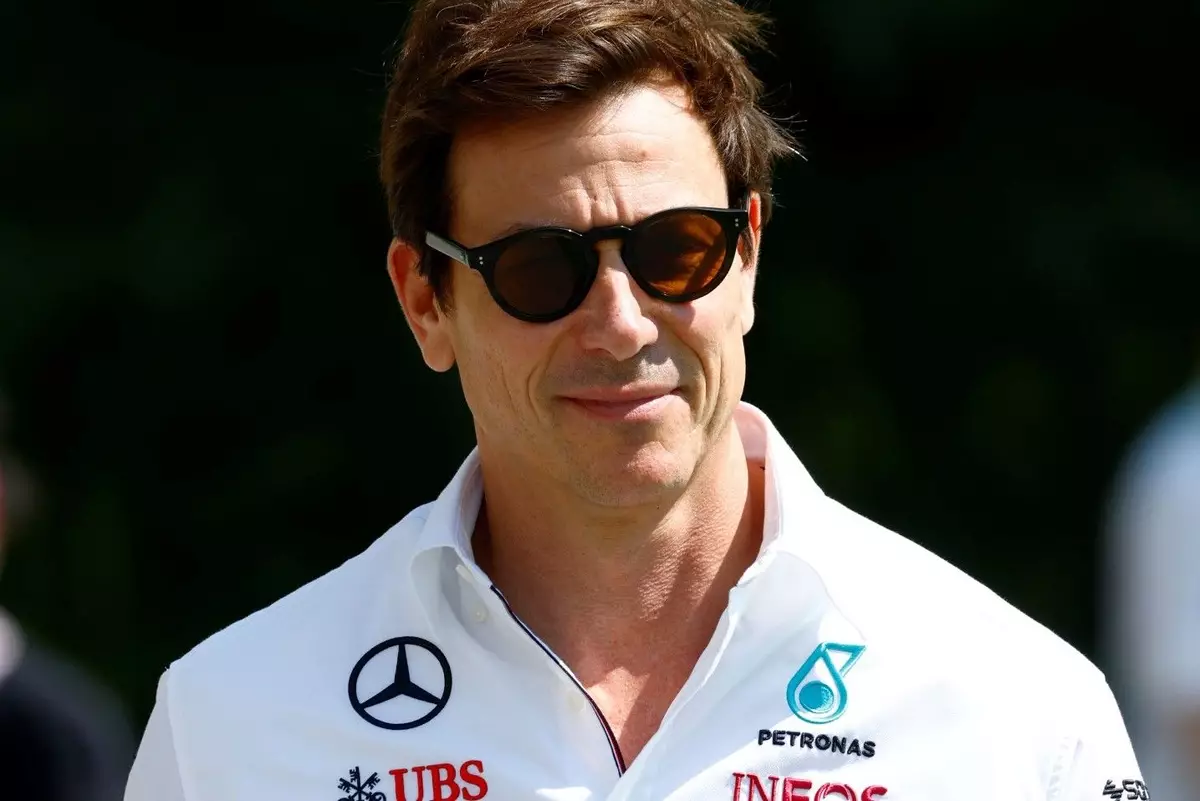The world of Formula 1 is no stranger to bold moves and unexpected transitions, and the recent developments involving the Mercedes team and its iconic driver Lewis Hamilton highlight this dynamic intrigue. As Hamilton gears up for his final races with the team before making a high-profile switch to Ferrari, the motorsport community closely watches this pivotal moment not just for the drivers involved but for the future of the Mercedes organization itself.
A Transformational Shift in the Driver Lineup
Toto Wolff, the team principal of Mercedes, has been vocally critical of how his comments surrounding Hamilton’s departure have been misinterpreted. The narrative that Wolff finds satisfaction in Hamilton leaving, has missed the broader context of the ongoing evolution within the sport. Since Hamilton joined the Brackley-based team in 2013, he has amassed an impressive six World Championships, firmly establishing himself as one of the sport’s greats. His departure marks not just a change in personnel, but a significant chapter closing for Mercedes.
Wolff mentioned that there is an inherent advantage in avoiding the painful phase of informing the sport’s most revered driver that his services are no longer required. Such statements reveal the harsh realities of F1—where performance and cognitive sharpness are paramount—and emphasize the inevitability of transition. As teams constantly evolve to remain competitive, Wolff’s assertion speaks to a strategic shift rather than a mere personal vendetta against Hamilton.
Understanding the Role of Age in F1 Performance
In the same breath, Wolff’s comments have incited discussions about age, performance, and longevity in high-stakes racing. He emphasized that all individuals, including drivers and team managers, go through an evolution that necessitates self-evaluation; “Am I going from great to good?” reflects a critical viewpoint that mirrors the pressures of the sport. For Wolff, this self-awareness resonates deeply. The race is not solely against competitors but also against time and personal limitations.
Yet he recognized Hamilton’s enduring prowess, asserting that while age may temper some aspects of a driver’s performance, it can also bring invaluable experience and refined race craft. This nuanced understanding adds a layer of complexity to the discussions surrounding athlete retirement, especially in a sport so intensely competitive that only the best can succeed.
As Hamilton prepares for what many fans are viewing as a farewell tour, the 2023 season has been a tumultuous one. Despite two victories—culminating in a historic win at the British GP—this season has also seen the challenges that come with evolving team dynamics. Hamilton’s unexpected win in Belgium was a significant moment, albeit shadowed by the disqualification of teammate George Russell, highlighting the unpredictability that can affect team standings.
Currently, with Russell sitting just two points ahead of Hamilton in the championship standings, the rivalry within the team adds an element of competitiveness to what is otherwise a transitional phase. Regardless of these internal dynamics, Mercedes appears to have set its sights on restructuring and future development, acknowledging that a fourth-place finish in the constructors’ championship is not the end goal.
With the uncertainty surrounding their lineup for next year and beyond, Mercedes is strategically shifting its focus toward the upcoming years. The selection of Andrea Kimi Antonelli to step up from Formula 2 is indicative of a long-term vision that seeks to blend the wisdom of experience with fresh talent. The onus is not only on developing an exceptional car but on cultivating an environment where emerging talents can flourish alongside seasoned veterans.
The transition of leadership from Hamilton to a new driving force will undoubtedly necessitate adjustments within the team. Mercedes is faced with an intricate puzzle: how to harness Antonelli’s potential while offering Hamilton a dignified exit after a storied career with the team. Wolff’s leadership philosophy and approach to managing change will be tested as the organization ventures into uncharted territories in a sport that demands constant excellence.
The Mercedes F1 team’s impending transition reflects a broader narrative of evolution within high-performance sports. As they navigate the complexity of driver changeovers, performance metrics, and competitive aspirations, the effectiveness of their strategic vision will determine not just their future, but also the legacy of Lewis Hamilton as one of the greatest drivers in the history of Formula 1.


Leave a Reply